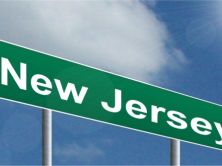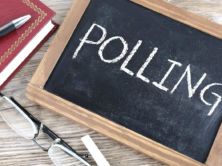
(Credit: NPR)
National Public Radio doesn’t give corrections enough on-air prominence, public editor Elizabeth Jensen recently argued. While NPR does post corrections quickly and on a centralized corrections page on its website, Jensen took the news organization to task for not making corrections as transparent as possible.
“The transparency with which NPR corrections are handled needs work,” Jensen wrote in a Sept. 18 column. For example, she noted that the corrections page isn’t “prominently displayed on the NPR.org home page,” and only received about 1,500 visits in the past month. But, more concerning, NPR doesn’t really broadcast its correction, Jensen reported.
“The far bigger problem, however, is how NPR, which is still, after all, a radio news organization at its core, handles corrections on-air,” she explained. “In short, it only very rarely acknowledges them there.” Jensen said she only was able to find two on-air corrections since January. (NPR spokesperson Isabel Lara told iMediaEthics that NPR doesn’t “dispute the calculation.”) That was especially troublesome because Jensen noted that in that time, about 100 stories have been corrected, based on online corrections for transcripts of radio broadcasts. Further, many broadcast errors are fixed without a correction because errors can be edited out in later broadcasts.
“The problem is that those corrections are not being acknowledged on the air, where listeners heard the mistakes; the corrections are being made online,” Jensen explained. “It’s not at all certain — and even unlikely, since there’s not a lot of overlap between NPR’s on-air listeners and online audiences — that listeners who heard the mistakes are even aware of the corrections.”
Another problem, Jensen reported, is that there is no policy for when something gets an on-air correction. That said, NPR’s standards and practices editor Mark Memmott is working on “a new protocol,” she said. Jensen called for NPR to add home page prominence to the online corrections page and editor’s notes, and for NPR to establish a policy for on air corrections.
iMediaEthics wrote to NPR to ask why it doesn’t just read all corrections on the air. Memmott responded, via NPR spokesperson Lara,
“Why don’t we read all corrections on the air? 1) not all our mistakes are made on the air, thankfully. 2) most of our mistakes do not seriously affect the main points of our stories (minor name mistakes; minor miscalculations; wrong dates; etc.) 3) there is no guarantee that the people who heard the mistake will hear the correction. All that said, we do correct significant mistakes on the air. Thankfully, we don’t make many of them.”







Comments Terms and Conditions